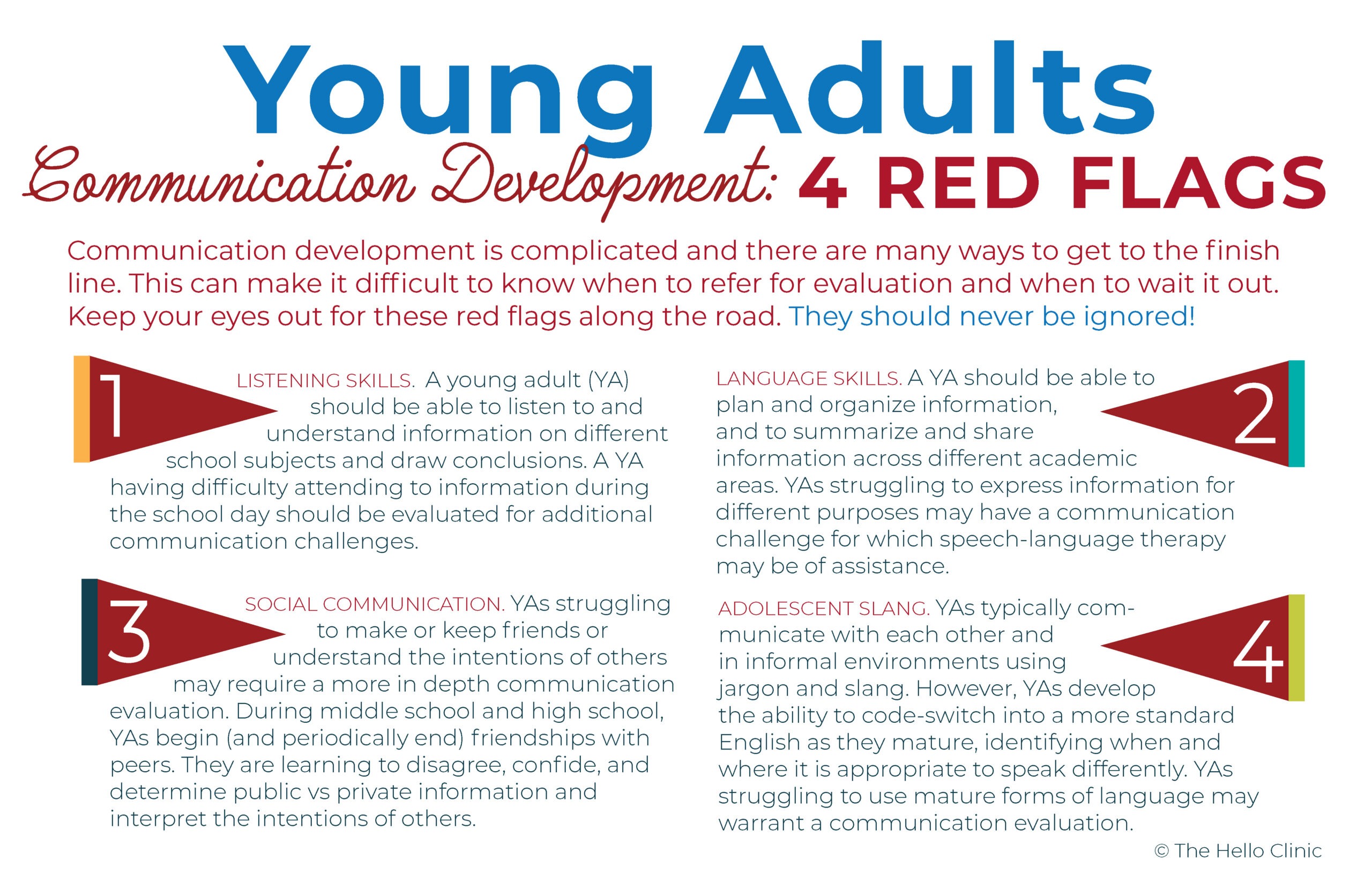We shared an article on communication development red flags in preschoolers that has been so popular that we thought we’d make a new one! This one explains four communication development red flags in young adults (5th to 12th grade).
The 4 Most Common Communication Development Red Flags in Young Adults
Communication development is complicated and there are many ways to reach the finish line. This can make it difficult to know when to refer for evaluation and when to wait it out. Keep your eyes out for these red flags along the road. They should never be ignored!
1. Listening Skills
A young adult should be able to listen to and understand information on different school subjects and draw conclusions. If a young adult has difficulty attending to information during the school day, they should be evaluated for additional communication challenges.
2. Language Skills
A young adult should be able to plan and organize information and summarize and share information across different academic areas. Young adults struggling to express information for different purposes may have a communication challenge for which speech-language therapy may be of assistance.
3. Social Communication
Young adults struggling to make or keep friends or understand the intentions of others may require a more in-depth communication evaluation. During middle school and high school, young adults begin (and periodically end) friendships with peers. They are learning to disagree, confide, and determine public vs private information and interpret the intentions of others.
4. Adolescent Slang
Young adults typically communicate with each other in informal environments using jargon and slang. However, young adults develop the ability to code-switch into a more standard English as they mature, identifying when and where it is appropriate to speak differently. Young adults struggling to use mature forms of language may warrant a communication evaluation.
Communication development in young adults is often overlooked at well-child checks and at school. A lot of attention is paid to the early developmental milestones (and rightly so!), but communication continues to develop into young adulthood, and kids can struggle anywhere along the way. Communication challenges at this age can be particularly troublesome as the academic workload increases and social interactions become more involved and high-stakes.
Here are a few questions to consider about the young adults in your life:
- Listening skills: Does your young adult listen to and understand different school subjects and draw conclusions?
- Language skills: Does your young adult plan and organize information, summarize, and share?
- Social communication: Does your young adult know what to keep private and what to share publicly? Does your young adult interpret the intentions of others?
- Adolescent slang: Does your young adult switch between informal social slang with peers, and know when it’s more appropriate to use formal, standard English?
If the young person in your life is struggling in any of these areas, give us a call. We love chatting about kids with parents and other professionals! We will help however we can and refer you to other helpers if we’re not the right fit.






